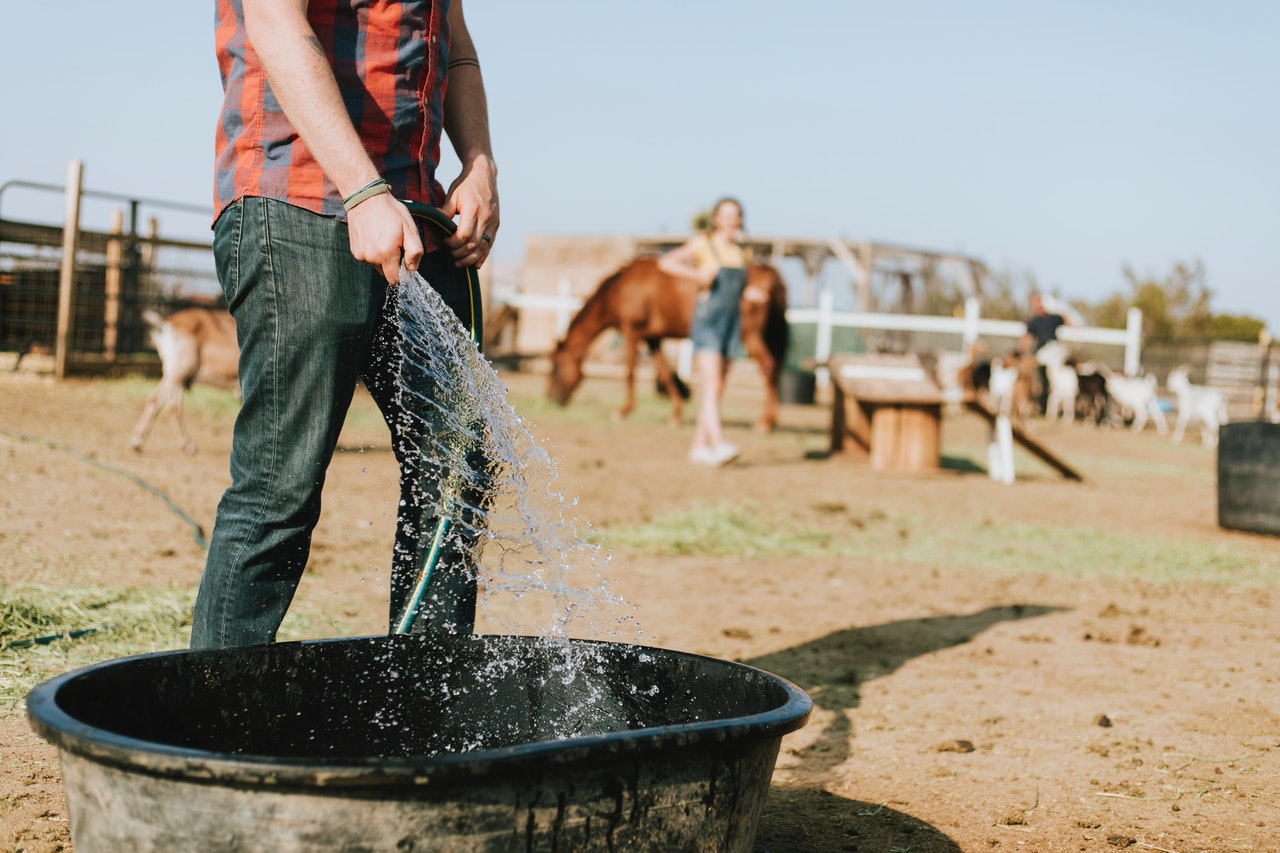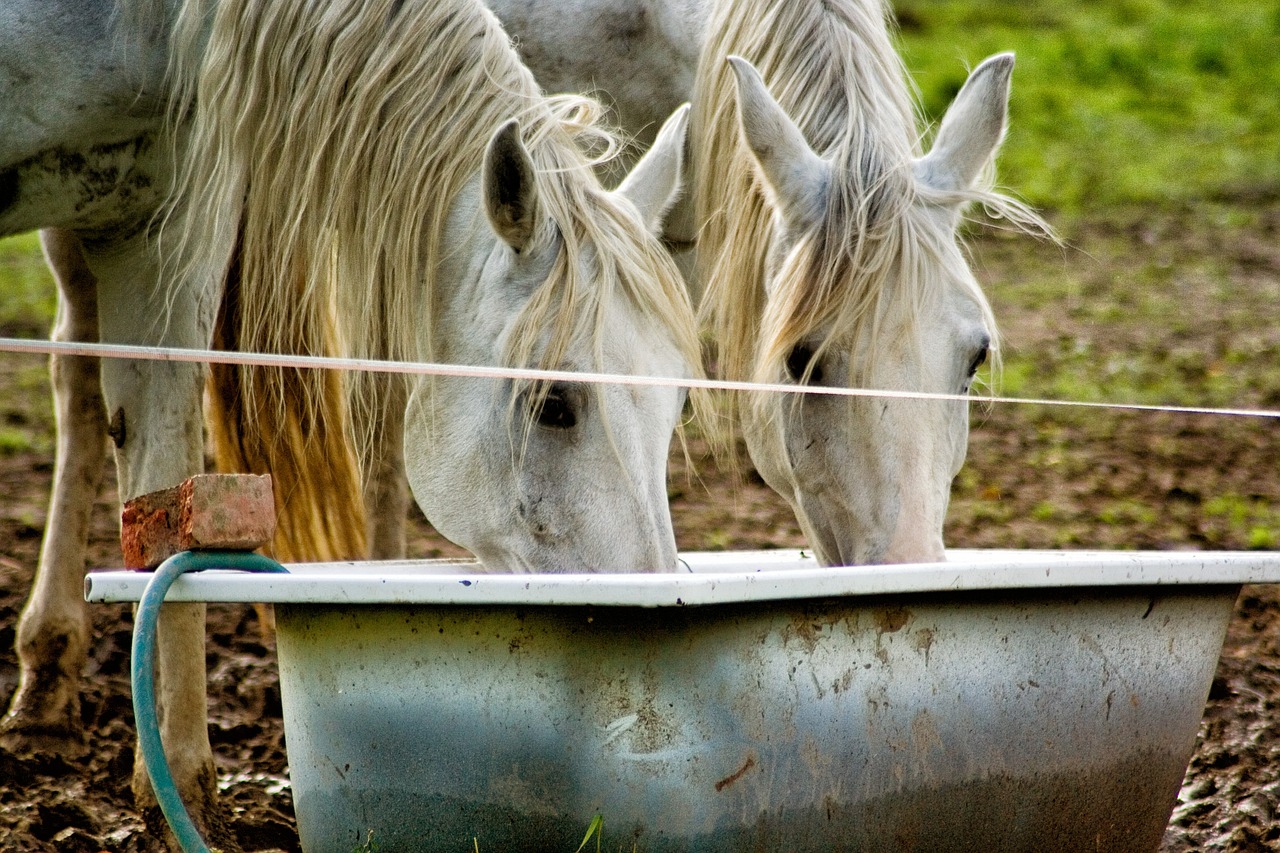Tuesdays with Tony
As I was lying in the middle of the driveway yesterday, I realized it was a bit warm. Humidity wasn’t too bad though, but that can only mean one thing: Summer is coming. With summer comes sweat, for horses and humans. Cats simply will not lower themselves to something as banal as sweating. Sweating is tough on a critter! I found out just how tough while researching electrolytes and horses.
That’s a lot of water!
At full exertion, horses can produce close to 4 gallons of sweat per hour! Yeah, I’m never going to exercise that much. That means they have to replace all that water when they’re done exercising. More importantly, it means a horse exercising gets dehydrated really, really quickly. That horse losing 4 gallons of water is at critical dehydration levels at the end of the hour. Let’s be honest, most of your horses (and humans) don’t exercise to max levels, but even sub-max is a decent amount of fluid loss. Why are we discussing this? Make sure your horse has access to PLENTY of water before, and after exercise. If you’re exercising for longer than 30-45 minutes you should even have water available during exercise. Another fun fact, horses (and humans) sweat even more in hot, humid weather. It’s never hot and humid in Florida, right? (should be read in an extreme level of cat-sarcasm tone).

More than just water
That sweat is more than just sweat. It contains a bunch (and I do mean a bunch) of electrolytes. For horses, they lose electrolytes in this order: Chloride> Sodium> Potassium> Calcium> Magnesium. Why does that matter? It means any electrolyte supplement should replace them in that order. In other words, check the label on your supplement. It also matters because those electrolytes are really important for things to happen the way they should in the body. One thing they do is make sure the gut moves the way it’s supposed to. You horse people don’t like colics, right? Electrolyte levels get whacked, you’ve got a colic. Electrolytes make sure all kinds of muscle contractions happen correctly, besides just the gut ones. The heart beat and muscles depend on proper electrolytes, as well. Basically, they’re pretty darn important to life.
I see sugar
Know what else horses use a lot of when they exercise? Sugar. That has to get replaced back into the muscles. This is what horses are surprisingly not great at. If you run a marathon (I don’t know why you would, but if you did), you could replace the energy stores in your muscles in about 12-24 hours. A horse doing equivalent exercise takes 48-72 hours to do the same thing! Crazy! Most of this energy is replaced by the normal process of eating hay and grain, but some of it is replaced by the sugar you see in electrolyte supplements. That sugar also helps the GI tract absorb the electrolytes. I think we can all agree a lot of sugar is bad, but a little bit is critical for exercise recovery.
What does all this really mean?
It means, if your horse is a pasture potato, having a salt block available and feeding a good quality hay and concentrate will meet all their needs. If your horse has to work for a living (this means physical labor as opposed to being in a supervisory role like myself), you will need an electrolyte plan.
On a day-to-day basis, a salt block along with a good diet is probably adequate, unless your horse is in hardcore training. When work gets stepped up though, it’s time to add in additional electrolytes about an hour before the hard work starts. Even better, but this can be nearly impossible with horses, add electrolytes to about a gallon of water, and have your horse drink them. Yeah, I know, you can lead them to water, and all that, but a bit of training before big events will help your horse learn this valuable skill. Make sure your horse has plain water available as well.

After work, be sure to offer electrolyte water again, or add to the next concentrate meal. This will help your horse replenish those valuable electrolytes as fast as they can.
The Perfect Electrolyte
There are approximately 1 bajillion different ones on the market. Look for ingredients in the order horses lose electrolytes, with one exception: chloride. Chloride tags along for the ride with all the others, so sort of by default, you’ll get lots of that.
Bottom line: look for Sodium (often listed as salt), potassium, calcium, and magnesium in the ingredients. There will be sugar in there too, and that’s okay! A little bit of sugar helps the gut absorb those electrolytes. BUT (and it’s a big BUT) sugar should NOT be the first ingredient on the list. It should be around 3-4 down on the list, and will likely come before magnesium. Once you have the right ingredients in the right order, pick the one your horse likes. That’s the really hard part.
Electrolytes are way more complicated than I ever dreamed! Speaking of dreaming, I’m going back to holding the chair in the back office down. You be a good human and scroll down a little further to subscribe to my blog. You’ll get it a day earlier than everyone else, and that will make your Monday a little cheerier.
Until next week,
~Tony
P.S. I know that I’m the resident celebrity around here, but my docs are starting to get worldwide attention with the podcast they do. Horse people all over Canada, UK, Europe, and Australia are listening, as well as people in all 50 states here in the US. Have you checked it out yet? It’s called Straight from the Horse Doctor’s Mouth. You can click on that link and find out for yourself what all the fuss is about!
Tuesdays with Tony is the official blog of Tony the Clinic Cat at Springhill Equine Veterinary Clinic in Newberry, Florida. If you liked this blog, please subscribe below, and share it with your friends on social media! For more information, please call us at (352) 472-1620, visit our website at SpringhillEquine.com, or follow us on Facebook!
[jetpack_subscription_form title="Subscribe to Whinny's Wisdoms"]
